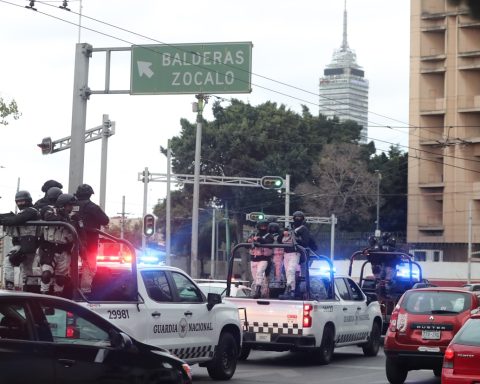SANTIAGO DE CUBA, Cuba.- It was November 2016 when she found out she was pregnant; she was just over 15 years old. A neighbor she asked for help bought her the test, which immediately came back positive. “I looked at the test and cried, I was like that for hours, until I decided to tell my mom,” says Leydis Pérez, from Santiago de Cuba. Santiago de CubaAs expected, the mother did not take the news well, but the two agreed that the best option was to abort. However, neither of them expected the experience to be so horrible.
“As I was a minor, it was a nameless game and about two weeks went by. I had to undergo tests and wait for the results. I remember that the swab made me feel upset and they sent me to treatment for seven days; days in which I didn’t eat or sleep because of the stress. Finally, they sent me to the Juan Bruno Zayas Clinical Surgical Hospital where they would perform the regulation, after six weeks,” Pérez recalls.
“When it was my turn, I went in with my mother, because she had to sign a consent form. The doctor was talking and I wasn’t listening, I was panicking, my hands were sweating and I was shaking. My mother couldn’t go with me. When I went in, they told me to take off all my clothes and gave me a gown and some cloth boots. Without further ado, the doctor placed the speculum in me and began to suction. I tried not to move, but at times the pain overcame me. Meanwhile, the doctor shouted at me: ‘Open your legs or I’m going to take you off the table’, ‘If you keep moving I’m going to accidentally pierce you’. He even slapped my leg as a reprimand. Those five minutes seemed like an eternity to me,” said the young woman from Santiago.
Cuba was the first country in Latin America and the Caribbean to decriminalize abortion. However, it still does not have a specific law for abortion or voluntary termination of pregnancy. Instead, between 1961 and 1965, a legal basis was created within Law 62 of the Penal Code, which authorizes this practice up to 12 weeks of gestation, within the framework of the National Health System. More recently, the Draft Law on Public Healthavailable online since November 2023, included the right to abortion, but legal protection remains insufficient.
Article 139: Women, in the exercise of their sexual and reproductive rights, have the right to decide on the voluntary termination of pregnancy, through the implementation of a preventive and therapeutic medical procedure, in institutions certified for this care and by qualified personnel, complying with the technical, ethical and legal regulations approved by the Ministry of Public Health.
Draft Law on Public Health
For its part, the Penal Code It establishes the corresponding penalties for those who perform abortions outside the established health regulations. However, as there is no specific law that endorses the policy of the right to free, safe and legal abortion, women also do not have a protection mechanism in case of suffering mistreatment during the process. In this context, these situations of gynecological-obstetric and gender violence have been normalized to a certain extent.
Although this law establishes that “abortion becomes a crime when it is carried out for profit, is performed without the consent of the woman or under conditions that may threaten her life and health,” in practice it does not work that way.
Daniela Padrón, from Songo La Maya, suffered medical abuse at the local Carlos J. Finlay Polyclinic in March 2022; she also had to pay for her abortion. She discovered she was pregnant when she was eight weeks old, but since she already had a small baby, she decided to terminate it. “I knew I was overdue, because my period lasts until the sixth week, but with contacts and money everything can be resolved,” she confessed. However, the risk of a menstrual period occurring at that time was imminent.
“The day before I gave the doctor 5,000 pesos and the next morning I went early. At that time there were already six women in front of me. He arrived at about 9:00 in the morning and before entering he told me: ‘Get in line and I’ll call you soon, don’t worry.’ I went by around 11:00. After signing the consent form, I took off all my clothes and went to the waiting room. When they called my name I swallowed hard, got up on the table, the doctor put the speculum in me and asked me to cough. Immediately afterward the pain was brutal. I had my eyes closed and my body tense, it was involuntary. ‘Relax, I can’t dilate my cervix like this,’ he told me, and I tried to cooperate,” Padrón described.
Despite the pain, the young woman breathed a sigh of relief after the abortion. But two days later she began to have a high fever, heavy bleeding and acute pain in the pelvic area. Her mother immediately took her to the clinic and, after an ultrasound, they discovered that she had ovular remains, which led to an infection. That same day she was sent to the Clinical Surgical Hospital, where they had to give her antibiotics, and then perform a curettage under anesthesia, as the protocol dictated. However, they performed a “cold-blooded cleaning” on her.
“The only thing I was thinking about was whether I would become sterile. It wasn’t the best time, but I wanted to give birth again. They admitted me to the curettage room at the Clinic and they started giving me oral and intramuscular antibiotics. I already felt much better, I was just waiting for the curettage. I was calmer because I thought it would be with anesthesia, until they told me that no, there was no need, because they would just do a cleaning,” says Padrón.
The term “cleansing” is commonly used in Cuba to refer to the intervention after an incomplete abortion. This dilation and curettage technique is used to extract tissue from inside the uterus, for various reasons (one of them being the removal of ovular remains). In countries such as Spain and the United States, the patient receives anesthesia during the procedure, but in Cuba, it is usually done in cold blood.
In this regard, physiatrist Roberto Serrano explains: “In both menstrual regulation and curettage, the application of anesthetics is necessary. In the latter case, the choice of anesthesia depends on the reason and the patient’s medical history. In Cuba, based on the scarcity of supplies and the precariousness of the public health system in general, the presumption of anesthesia in particularly invasive and painful procedures such as these has become normal. But it does not mean that it is normal or correct, nor does it mean that women end up being raped.”
The other form of treatment after an incomplete abortion would be the administration of misoprostol, either orally or vaginally, but again, this method is also suppressed due to shortages.
“I felt like I was being scraped and sucked, it was an unbearable pain, combined with the urge to defecate. The doctor told me ‘Put your buttocks on the table’ and I tried to do it but instinctively I moved back. The nurse was at his side, taking increasingly larger forceps. I only saw the forceps. That lasted about 20 minutes, I estimate, maybe less, I don’t know, but it wasn’t as fast as the procedure. When it was over, they had to inject me, because the pain in my ovaries was unbearable,” lamented Daniela Padrón. “After 24 hours they did an ultrasound and I was clean, thank God,” she concluded.
During this investigation, we spoke with Sara*, a nurse in the Curettage Room of the Juan Bruno Zayas Clinical Surgical Hospital, who has more than 20 years of experience in that institution and agreed that the medical staff is violent towards women. “Sometimes they go too far. The pain from any of these methods is very strong, many have fainted or have gotten up from the table halfway, which is why there are traces left. I try to hold their hand, to speak to them softly and lovingly, because apart from being a nurse, I am also a woman.”
As for the retention of ovular remains, medical readings indicate that it is one of the most frequent complications that result from the interruption of pregnancies, and it almost always leads to heavy bleeding or hemorrhages. Other consequences are lesions at the level of the cervix, uterine perforations and infections in the endometrium (endometritis). In the long term, this can cause infertility.
“Here everything is done blindly,” the nurse stressed. “I understand that in other countries they do ultrasound curettage, for example. But here in Cuba, the doctor has to know how the uterus sounds when it is clean, and not everyone knows how to do that,” she said.
Despite the physical and psychological abuse, the profits that surround abortions on the island, and the consequences, which can be fatal, there are no known cases of those responsible being prosecuted, precisely because of this lack of protection, reparation and prevention mechanisms. The interviewees themselves agree that “doctors always have the opportunity to “get away with it.”
In 2023, Lizandra and her mother tried to file a complaint against a gynecology technician who put the girl’s life in danger, but the process never even began. In February of that year, they went to the Hospital Materno Sur in Santiago de Cuba, known as Clínica de los Ángeles, where the 18-year-old girl underwent menstrual regulation that resulted in infection. Lizandra complained to the same hospital, claiming that she was operated on by a gynecology technician instead of a specialist. She also blamed the poor results on “malpractice.” But her complaints were of no effect.
“I was surprised because the consultation was presided over by a highly recommended doctor, but at the time of the procedure, a technique was assumed; he was behind her giving her instructions and occasionally asking her questions. When she made her decision, she told me that she was done, and I got up and left. The next day, the fever and bleeding began. I also slept a lot, which I later found out is a symptom of septicemia. I was on the verge of death,” Lizandra recalled. “My mother and I tried to sue them, but they hid behind the consent I signed before the procedure,” she said.
*Sara is a pseudonym.
Follow our channel WhatsApp. Receive the information from CubaNet on your cell phone through Telegram.

















